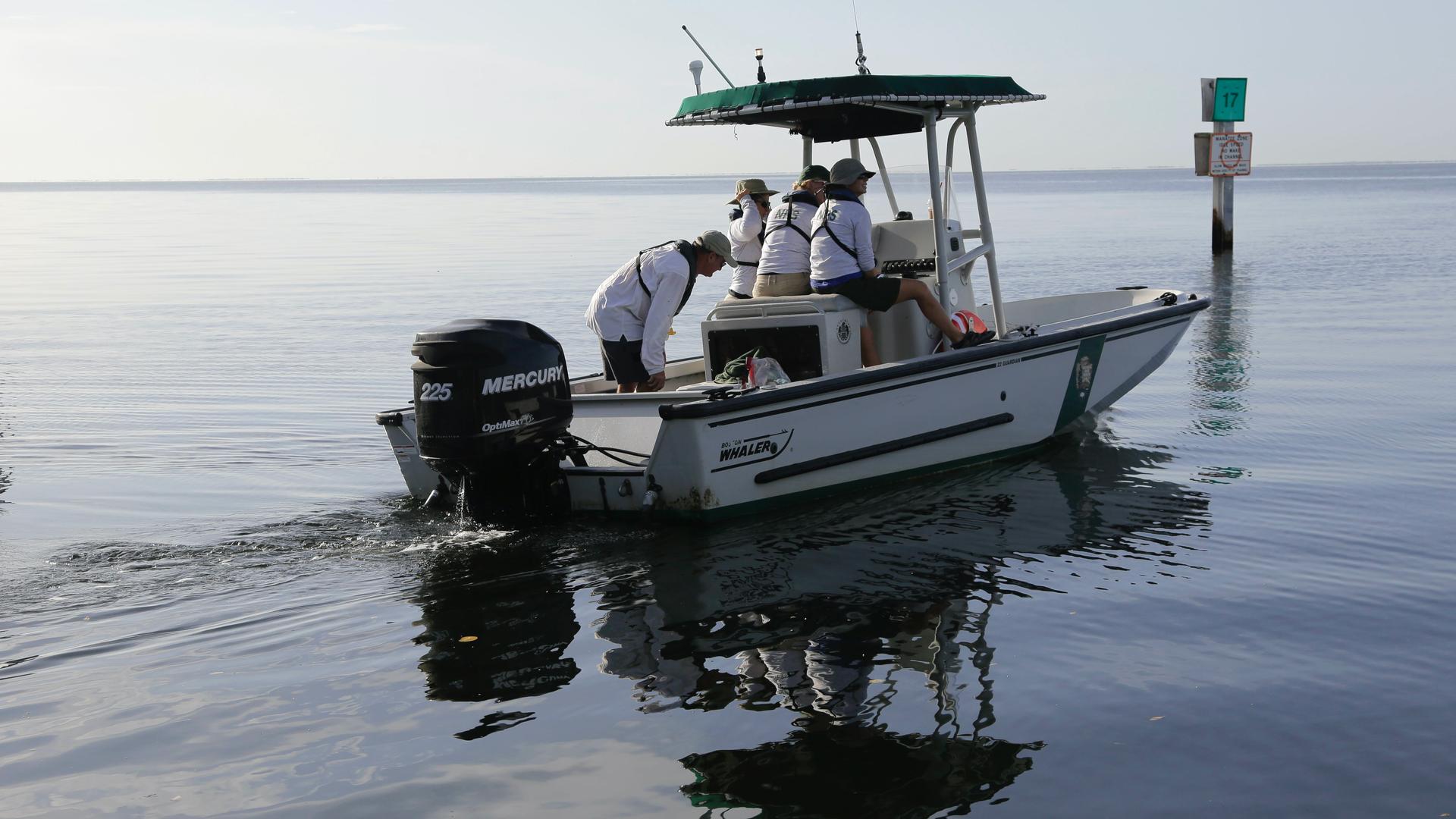How governments finance the ruin of our oceans
Our oceans were once believed to be an endless source of fish. That has since been proven false — and as absurd as denying climate change.
Yet, different governments around the world, including the United States, not only allow extreme overfishing but actually pay fishing boats to turn the oceans into so-called “dead zones.”
The World Trade Organization will discuss banning this at a meeting later this month. Meanwhile, a well-known marine biologist, Daniel Pauly, says the oceans are reaching a tipping point.
The World’s Southeast Asia correspondent, Patrick Winn, spoke with Pauly, asking him what we can do to reverse this crisis.
Patrick Winn: When we talk about overfishing, that mostly means a type of fishing called trawler fishing. How does it work?
Daniel Pauly: Trawling is dragging a net behind a powerful boat. And the dimension of the nets is such that you could put four jumbo jets at the same time in it. Four jumbo jets. So, these nets, they’re dragged on the bottom of the ocean. And everything in their path, they take. This is very different from catching fish with a hook and lines.
Right, so it’s really imprecise.
Yep, the big fish, the small fish, the medium fish, different species — they all get caught. You reject all the fish you don’t want. So, millions of tons of perfectly good fish is thrown overboard by trawlers all over the world. It can be so extreme as rejecting 90% of your catch. Dead, obviously. Dead into the water. This is an extremely wasteful method of fishing.
Your research has shown that trawling creates these “dead zones” in the ocean, with mostly jellyfish floating around. So, what does that mean for trawlers who are still out there trying to scoop up fish?
What it means is that the trawler fleets have to go further and further. And they don’t catch much. So, what do you do? You beg your government for subsidies. For lower costs on capital. You get lower costs on fuel. You get lower costs on building and repair, loans and so on. All of these subsidies amount to about a third of the value of the catch.
So, following that logic, as we drain the oceans of fish, the trawlers have to get more aggressive, burn more fuel and ask the government for more assistance just to collect the fish that are left?
Yes. The fisheries scientists are trying desperately to remove subsidies from big fleets, from big trawlers. Because they are not needed to produce the fish that we want. They are not needed. This is a race to the bottom. It’s completely useless. It’s like global warming. We could do without things that are causing all these problems. But there are lobbies that prevent us from doing so.
Around the world, all countries put together give $35 billion a year in subsidies to trawlers. A lot of money. And I see $700 million of that comes from the United States. How big a factor is the US here?
The US is not the major subsidizer. The major subsidizers are China, Spain and France and Italy. In Asia, it is China, Japan, Korea. And these subsidies enable fleets to be kept afloat that don’t really earn a net profit.
If you took away government money, would the trawler fleets go out of business?
Yes, they would go bust. Right away. Right now, the WTO is negotiating about the abolition of subsidies. They will probably not succeed. But if they did, it would have no negative effect on food supply. In the case of trawlers, getting rid of them would enable the other sector of fisheries, especially smaller boats, smaller players, that don’t use so much energy and don’t get subsidies so much.
These dead zones in the ocean keep growing and growing. Do you worry it’s too late to reverse this trend?
It’s never too late. What would it mean? We give them more subsidies so they can destroy more? It doesn’t make sense. It is always a good thing to do what is right.
This interview has been lightly edited and condensed for clarity.
Sign up for our daily newsletter
